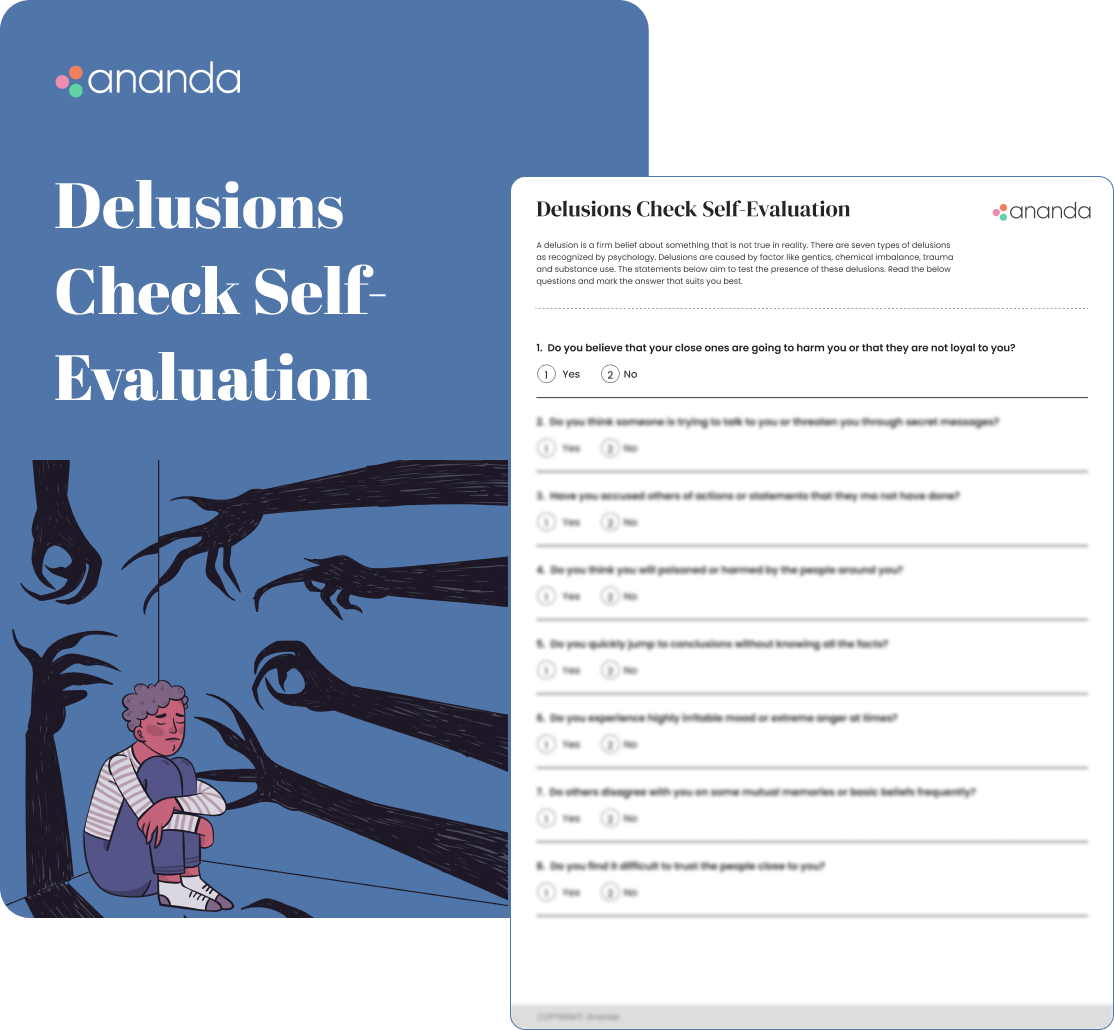Delusions Check Self-Evaluation
The Self-evaluation method is used to rate oneself on the basis of the score obtained on the test and to analyze the situation critically and act on it. This method will help individuals to honestly evaluate their strengths, and weaknesses and get to know themselves better.

Download "Delusions Check Self-Evaluation"
The Delusions Check Self-Evaluation is a short 8-item assessment wanting to measure your delusions levels and trying to understand your mental health condition to the best.
Delusions, previously called paranoid disorder, is a type of serious mental illness where people experiencing it can’t tell what’s real from what is imagined. They usually involve mistaken perceptions or experiences. But in reality, the situations are either not true at all or highly exaggerated.
Severity of Delusions – Mild, Moderate, High
It will help you better understand your mental health condition.
The evaluation will help you gain insight into your emotions and work on them.
Frequently Asked Questions
The Delusions Check Self-evaluation is a delusions assessment that will make you aware of your delusion levels and its severity. This self-evaluation will give you a better understanding of the symptoms of delusions, if you have any. It will also give you insights into any issues that you are facing at the moment and to seek help for them.
The biggest advantage of this assessment is that it gives you an overview of your mental wellbeing in general and whether you need to reach out to a mental health professional to seek help and guidance. Along with this, it will give you an insight into the physical as well as emotional signs and symptoms.
Once you have taken the evaluation and answered all the questions, you will be required to score yourself for each answer and get a total score as per the instructions given below the test. Your total score will determine the severity of delusions that you maybe facing. You can then proceed to book a session with Ananda if you feel so!
The most common method to assess delusions is through clinical interviews of psychotic symptoms. This can be done only when a therapist comes into play and the individual shares their concerns and problems faced with the therapist.
It is recommended that people should not feed into or confirm the delusions being narrated by asking questions about it when the person is not in psychosis since it might trigger some unwanted emotions within the person and they might feel debilitating about things being spoken about which they feel they have no control over.
A delusion is a false belief that persists in spite of evidence where the person cannot tell what’s real from what’s imagined. A person can be aware that they are gripped by a belief that others do not endorse and may even actively attempt to disapprove, but the belief feels so overwhelmingly true that they cannot shake it, despite the evidence presented.
The 3 basic types of delusions are- Erotomania, Grandiose and Jealousy.
- Delusions of Erotomania is where the person believes someone is in love with them and might try to contact that person. Often it’s someone important or famous.
- Delusions of Grandiose is where the person has an over-inflated sense of worth, power, knowledge, or identity. They could believe they have a great talent or made an important discovery.
- Delusions of Jealousy is where the person believes their spouse or sexual partner is unfaithful.
Delusions are disturbances in reality that a person experiences where normal processes of thought and perception are disturbed. Such loss of touch with reality can either be a delusion or a hallucination depending on the signs and symptoms experienced by the person. Try contacting a mental health professional to get an accurate diagnosis of your condition.
